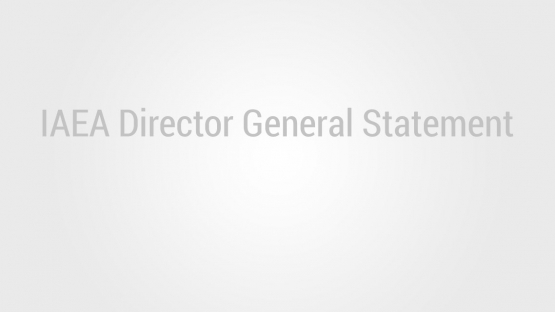It is my privilege to welcome participants to this Regional Executive Management Seminar on Radiation Processing in Industry, which was jointly organized by the International Atomic Energy Agency (IAEA), and the Institute of Atomic Energy Research of the King Abdulaziz City for Science and Technology (KACST).
I am pleased to note that this is the second regional activity of its kind to be hosted by the Kingdom of Saudi Arabia for executive managers from the Middle East region, and I warmly congratulate and thank the local organizers for their dedication and diligence in preparing the seminar, which aims at promoting the practical applications of nuclear techniques in the region for national development. I am equally pleased to note also that this meeting has brought together specialists from the industrialized countries to share their knowledge and experience with participants from the region.
Your discussions will focus on possible ways of extending the peaceful applications of nuclear techniques to the industrial development processes of participating countries. In recent times, as you may be aware, many nuclear techniques have been developed and are being applied on an industrial scale for the exploration and exploitation of energy and mineral resources, in the production of radiopharmaceuticals, and in the development and production of new materials. These applications, and particularly radiation processing, have resulted in considerable technical and economic benefits, through improved quality of materials and improved reliability of equipment and savings in energy and materials. These advances ultimately have the result of improving the quality of life.
Also, many institutions in the Middle East are usefully applying nuclear techniques in such diverse fields as medicine, hydrology, agriculture and industry; radioisotopes and radiation techniques are being used to improve crops, to preserve food crops, to determine groundwater resources, to sterilize medical supplies, to analyze hormones, to check for defects in pipelines, to control the quality of industrial products, and to study environmental pollution.
The IAEA is very actively engaged in the transfer of radioisotope and nuclear techniques to developing countries; the Agency's involvement in this Seminar is an example of the role it can play.
I am informed that the programme of the seminar will focus on the basic principles of radiation processing in industry, non-destructive testing of materials, nucleonic control systems, ion implantation techniques, among others. These techniques are highly relevant for nations which are seeking to improve industrial development and productivity. The advantages of these nuclear techniques include speed and relative simplicity of use. In some cases, nuclear techniques can be used in circumstances where no other instruments or methods can be used.
The need to modernize and to improve the efficiency of industry in developing countries is increasingly being recognized, and the IAEA is pleased to be able to contribute to this effort. It is my hope that the participants in this Seminar will increase their knowledge and understanding of industrial applications of isotopes and radiation and that this knowledge will be used fruitfully to advance the industrial development of the region.


